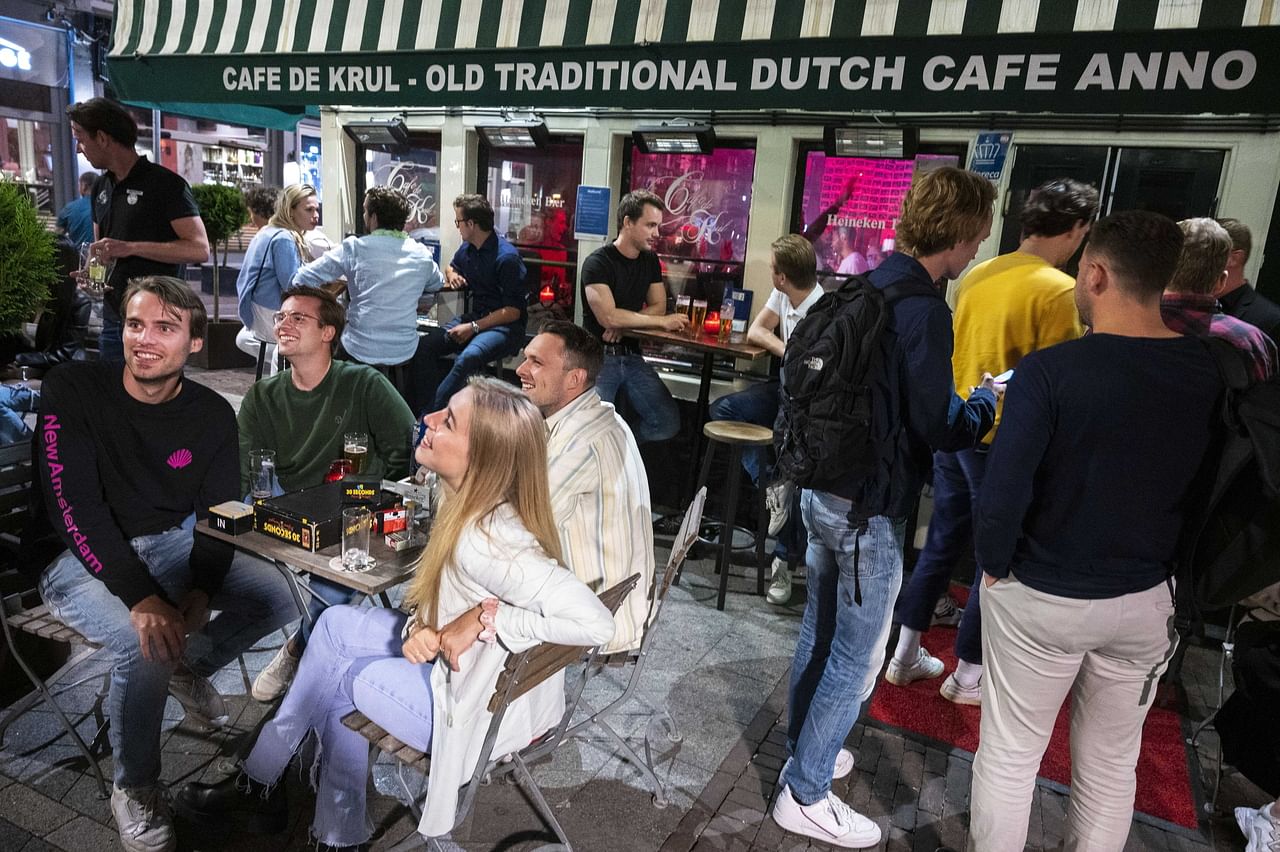Covid-19 reality threatens Dutch 'Summer of Love'
LEIDEN, NETHERLANDS (AFP) – It had been billed as the “Summer of Love” in the Dutch media, with the relaxing of coronavirus measures promising a return to going out and having fun.
But just weeks after restrictions were rolled back in the Netherlands, those hopes look all but dashed as new infections skyrocket.
Prime Minister Mark Rutte’s government made a U-turn on Friday (July 9), re-tightening rules including closing nightclubs and discos and banning festivals lasting more than 24 hours.
His government faced criticism for easing a raft of measures in mid-June by top epidemiologists and the media who said the decision – which included getting rid of face masks – “came too soon”.
New infections of the highly-contagious Delta variant have pushed daily case figures from 918 on June 18 – when Rutte first announced major roll-backs – to almost 7,900 on Tuesday.
“A judgement error was made,” Rutte admitted at a press conference this week, adding: “We’re upset about it and we apologise.”
The Dutch parliament returned from its summer break for an extraordinary session on Wednesday to debate the spiralling numbers, as a survey showed that more than half of citizens agreed that the easing was premature.
“People also supported the move to close nightclubs and discos and a large majority said they will not go on holiday to a country that has been designated as an orange corona designation,” said the NOS public broadcaster, which conducted the survey.
“I think what happened is that relaxations happened quite suddenly and were complete. Almost everything was possible again,” said Frits Rosendaal, epidemiology professor at Leiden University Medical Centre. “And that led to a not unexpected increase in infections. The relaxations were too early,” he told AFP.
Diederik Gommers, an intensive care specialist who serves as an expert advisor to the government’s Outbreak Management Team, agreed.
“The most important thing is that it happened too fast. They gave the impression that we can go wild again,” Gommers told BNR news radio. “It’s very important how you bring a message across and the pressure was enormous to ease measures… we all want our pre-corona lives back.”
“Only, we cannot go back to our previous lives yet, because the virus isn’t gone,” Gommers said.
“The Summer of Love may not happen,” the centre-left daily De Volkskrant lamented in an editorial.
The term, first coined for the hippie festivals of the 1960s, started being used in the Dutch media after the government first announced the easing of measures.
A number of music festivals have now been postponed, including the popular Milkshake Festival in Amsterdam’s Westerpark.
People have voiced disappointment but understanding over the turnabout.
“It’s a shame, because everybody expected to have an open summer, with a lot of activities and I knew that my friends were all buying tickets to everything,” said Wouter Stumphius, 25, a student in The Hague. “And now it’s just all cancelled again. I feel bad about it, but I understand it completely. For me it’s logical reasoning from the government,” he told AFP.
Dutch media and medical experts have pointed to several reasons for the rapid rise in new infections, particularly among people aged between 18 and 25.
A test-for-admission experiment, where unvaccinated participants could still enter discos and nightclubs if they showed a recent negative antigen test, “in hindsight seemed not to be water-tight,” the popular daily Algemeen Dagblad said.
False negative tests, lack of entrance control and fraud with test results all led to “the end result: super spreader events,” the paper added.
Health Minister Hugo de Jonge also came under fire for a comment – ostensibly made to encourage young people to get vaccinated – when he said you can go “dancing with Janssen”, referring to Johnson & Johnson’s one-jab vaccine.
“However, protection through vaccination is not something that is present immediately after the injection, as De Jonge should have known,” De Volkskrant said.
“Dancing with Janssen. And then came the hangover,” read a headline in the Algemeen Dagblad this week.
But epidemiologist Rosendaal stressed there was light at the end of the tunnel. “There will be infections and there will be hospitalisations. But there won’t be such enormous numbers of patients…” in hospital because many people have now been vaccinated. “It is a serious setback. But it’s not a disaster,” Rosendaal said.
Source: Read Full Article



